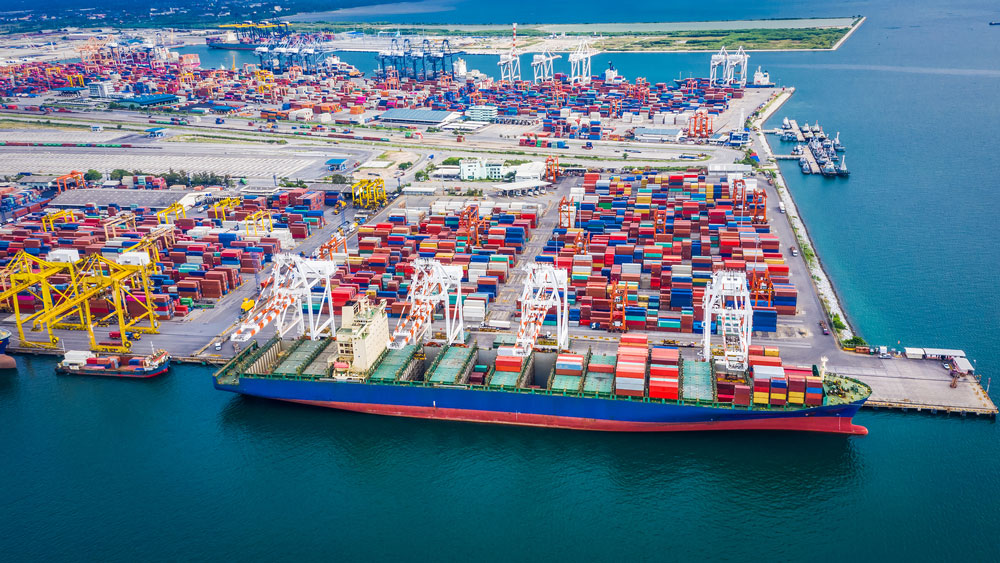The coronavirus pandemic seems to have failed to create obstacles for certain big business initiatives taken by ambitious entrepreneurs, who are always on the lookout for ways to take their firms to the next level.
Such is the case with Sojitz Corporation and Energypac, who managed to secure a substantial amount of funds from the Japan International Cooperation Agency (JICA) and International Finance Corporation (IFC) to establish Bangladesh’s first private seaport in Chattogram.
Sojitz, a leading Japanese business group, and Energypac, a local conglomerate, will also construct an industrial park on over 1,000 acres of land at Bangabandhu Sheikh Mujib Shilpa Nagar (BSMSN) in Chattogram.
“Both the JICA and IFC may involve with us in the development of a seaport and industrial park at the BSMSN,” said Nurul Aktar, a director of Energypac Power Generation Limited (EPGL).
Initially, JICA will provide the necessary funding for a final feasibility study on the seaport. The organisation then may finance up to $2 billion for the port’s infrastructure development, he said.
As per the initial feasibility study, both Sojitz and Energypac will need to invest about $1.2 billion within 2024 to complete the first phase of development of the seaport. To fully complete the project, an estimated $2.5 billion will be invested.
“The port will be economically viable and will be used by the BSMSN to handle bulk quantity of products after operations start in full swing in the zone in 2030,” Aktar told The Daily Star.
The existing Chattogram port will not be able to handle the increase in import and export activities when the economic zone becomes fully functional in 2030.
This is why a modern and efficient seaport is essential for the proper handling of export and import activities at the zone, he added.
Once complete, the seaport will be able to house 30,000 to 40,000-tonne cargo vessels, which is far greater than the present 10,000-tonne capacity of Chattogram port.
At present, there is no scope to build additional jetties at Chattogram port, Aktar said.
The Bangladesh Economic Zones Authority (Beza) have already allocated a 1,000-acre plot for the project.
Earlier, Humayun Rashid, managing director of Energypac, told The Daily Star that initially, $500 million would be invested in the project while a further $2 billion will be added in phases to establish the country’s maiden private seaport.
The joint venture is also interested in keeping the government involved in their $2-billion plan to build a seaport and energy industrial park in Chattogram under a public-private partnership (PPP).
Sojitz also plans to establish an infrastructure project that will provide services for handling bulk materials through the port, where mother vessels will anchor.
The Chattogram port cannot provide sufficient services for handling bulk materials due to a lack of technology and the necessary space. That is why Sojitz hopes to provide this service, which would lower the cost of doing business, said Aktar.
The Japanese company is also keen to develop businesses in various industries, such as machinery, chemical, medical, renewable energy, coal, food and textiles.
The new port and industrial park could create up to 100,000 jobs and business opportunities for different sectors, including logistics and shipping.
It is, however, a considerable challenge for any Bangladeshi company to undertake such a tremendous project without support from an efficient foreign company.
“Sojitz has the experience of handling this type of port project and we have a plan to engage a top seaport authority in Japan with this project in order to make it a top port,” Aktar said.
Sojitz has been working in Bangladesh since 1951 and was the contractor for a number of major construction projects, including the Pan Pacific Sonargaon Dhaka and an integrated steel plant in Chattogram.
Back in 1951, the corporation opened liaison offices in both Dhaka and Chattogram but offices were eventually closed down in 2004. In June 2018, however, Sojitz opened a new office in Dhaka.
Harun-Ar-Rashid, project director at EPGL, said the companies hope to begin development work within the next year following the final feasibility study.
The joint venture received a recommendation letter for their fund application to JICA for the final feasibility study yesterday.
“Now, we will forward the fund application to the JICA and IFC,” the Energypac director said.

